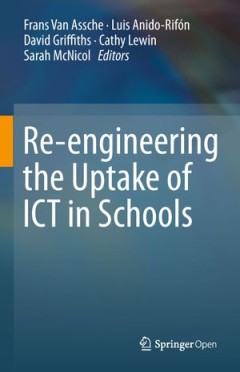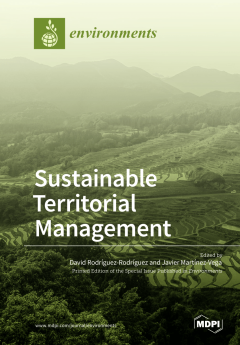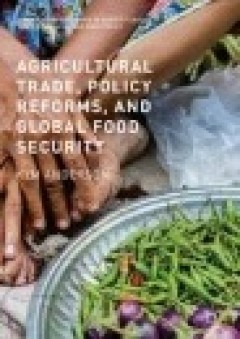Filter by

Alessandro Torlonia: The Pope’s Banker
This book provides a vivid biography of a towering Italian banker, pioneer and entrepreneur. It weaves the entrepreneurial ventures of Alessandro Torlonia (1800-1886) through the narratives of business and politics in the Nineteenth century, the growth of European financial markets and the decline of Papal power during the Italian Risorgimento. The discussion is founded in rigorous historical r…
- Edition
- Ed. 1
- ISBN/ISSN
- 978-3-319-41998-5
- Collation
- XV, 269
- Series Title
- Palgrave Studies in the History of Finance
- Call Number
- 332.4 FEL a
Sales and Leases : A Problem-based Approach
Sales and Leases is a coursebook for a 3-credit course in personal property sales and leases – the subject matter of UCC Articles 2 and 2A. Adjustments could be made for other credit allocations and chapters can be used on a stand-alone basis. The course is designed so that students both review the rules and principles they studied in their first-year course in Contracts and learn the rules t…
- Edition
- -
- ISBN/ISSN
- -
- Collation
- -
- Series Title
- -
- Call Number
- 340 BUR s

Air Flow Management in Raised Floor Data Centers
The Brief discuss primarily two aspects of air flow management in raised floor data centers. Firstly, cooling air delivery through perforated tiles will be examined and influence of the tile geometry on flow field development and hot air entrainment above perforated tiles will be discussed. Secondly, the use of cold aisle containment to physically separate hot and cold regions, and minimize hot…
- Edition
- Ed. 1
- ISBN/ISSN
- 978-3-319-25892-8
- Collation
- XX, 72
- Series Title
- SpringerBriefs in Applied Sciences and Technology
- Call Number
- 333.79 ARG a

Aid in Transition: EU Development Cooperation with Russia and Eurasia
This book is the one of the first to address aid effectiveness as a political and comparative economics question. Since the collapse of the Soviet Union and the transition of its republics to market structures and more representative forms of government, the European Commission has recognized the necessity of a closer economic cooperation with Russia, Ukraine and Kazakhstan, the three largest e…
- Edition
- Ed. 1
- ISBN/ISSN
- 978-1-4614-6582-9
- Collation
- XVI, 103
- Series Title
- -
- Call Number
- 337 GRI a

Re-engineering the Uptake of ICT in Schools
This book reports on a novel and comprehensive approach to the uptake of ICT in Schools. It focuses on key questions, pedagogically sound ways of introducing ICT, new technical artifacts supporting the approach, the evaluation in a large-scale validator, and future work. While many innovations in Technology Enhanced Learning (TEL) have emerged over the last two decades, the uptake of these inno…
- Edition
- -
- ISBN/ISSN
- 978-3-319-19366-3
- Collation
- XVII, 201 halaman
- Series Title
- -
- Call Number
- 370 REE

Sustainable Territorial Management
Human development has made remarkable social and economic progress possible for most of us but has also entailed a range of serious impacts on natural resources, local communities and the economy at multiple scales. Thus, achieving sustainable territorial management that combines healthy and prosperous societies with the long-term maintenance of biodiversity and productive ecosystem services re…
- Edition
- -
- ISBN/ISSN
- 978-3-03897-213-6
- Collation
- -
- Series Title
- -
- Call Number
- 307 SUS
Introduction to Criminal Investigation : Processes, Practices and Thinking
Introduction to Criminal Investigation, Processes, Practices, and Thinking is a teaching text designed to assist the student in developing their own structured mental map of processes, practices, and thinking to conduct criminal investigations. Delineating criminal investigation into operational descriptors of tactical-response and strategic response while using illustrations of task-skills …
- Edition
- -
- ISBN/ISSN
- -
- Collation
- -
- Series Title
- -
- Call Number
- 340 GEH i
Intellectual Property : Law & the Information Society—Cases and Materials
This book is an introduction to intellectual property law, the set of private legal rights that allows individuals and corporations to control intangible creations and marks—from logos to novels to drug formulae—and the exceptions and limitations that define those rights. It focuses on the three graphmain forms of US federal intellectual property—trademark, copyright and patent—but many…
- Edition
- -
- ISBN/ISSN
- -
- Collation
- -
- Series Title
- -
- Call Number
- 340 BOY i
Introduction to the Law of Property, Estate Planning and Insurance
Introduction to the Law of Property, Estate Planning and Insurance is an up-to-date textbook that covers legal issues that students must understand relating to real estate (an especially important business asset), as well as estate planning and insurance. The text is organized to permit instructors to tailor the materials to their particular approach. The authors take special care to engage stu…
- Edition
- -
- ISBN/ISSN
- 9781453344163
- Collation
- -
- Series Title
- -
- Call Number
- 340 MAY i

Agricultural Trade, Policy Reforms, and Global Food Security
This book explores the potential for policy reform as a short-term, low-cost way to sustainably enhance global food security. It argues that reforming policies that distort food prices and trade will promote the openness needed to maximize global food availability and reduce fluctuations in international food prices. Beginning with an examination of historical trends in markets and policies, An…
- Edition
- Ed. 1
- ISBN/ISSN
- 978-1-137-46925-0
- Collation
- XXV, 370
- Series Title
- Palgrave Studies in Agricultural Economics and Food Policy
- Call Number
- 337 AND a
 Computer Science, Information & General Works
Computer Science, Information & General Works  Philosophy & Psychology
Philosophy & Psychology  Religion
Religion  Social Sciences
Social Sciences  Language
Language  Pure Science
Pure Science  Applied Sciences
Applied Sciences  Art & Recreation
Art & Recreation  Literature
Literature  History & Geography
History & Geography